Psyllium Husk Powder
Psyllium Husk Powder Trade Information
- Minimum Order Quantity
- 100 Kilograms Kilograms
- FOB Port
- Mumbai,INDIA
- Payment Terms
- Cash on Delivery (COD), Letter of Credit at Sight (Sight L/C), Telegraphic Transfer (T/T), Cash Against Delivery (CAD), Cash in Advance (CID)
- Supply Ability
- 100 Kilograms Per Month
- Delivery Time
- 7 Days
- Sample Available
- Yes
- Sample Policy
- Within a certain price range free samples are available
- Packaging Details
- 25 Kgs Paper bags 25 Kgs Fibre Drums 50 Kgs Fibre Drums 1000 Kgs Jumbo Bags
- Main Export Market(s)
- Australia, North America, Eastern Europe, Middle East, Africa, Western Europe, Central America, South America, Asia
- Certifications
- WHO -GMP ISO 22000 HALAL CERTIFIED ORGANIC CERTIFIED (NOP/NPOP)
About Psyllium Husk Powder
Here are some key points about psyllium husk:
Facts about Psyllium husk:
FAQ:
1. What is psyllium husk?
2. How does psyllium husk work?
3. What are the health benefits of psyllium husk?
4. How do I take psyllium husk?
5. Is psyllium husk safe to consume?
6. Can I use psyllium husk for constipation?
7. Does psyllium husk help with diarrhea?
8. Can psyllium husk lower cholesterol levels?
9. Is psyllium husk gluten-free?
10. Can I take psyllium husk supplements with other medications?
11. Can psyllium husk be used for weight loss?
12. Are there any potential side effects of psyllium husk?
13. Can I give psyllium husk to children or pets?
Natural Fibre for Digestive Wellness
Harness the benefits of Psyllium Husk Powder, a natural dietary fibre sourced from Plantago ovata. This ingredient assists in supporting digestive health and promotes regular metabolism, helping individuals maintain a balanced digestive process by increasing their daily fibre intake.
Versatile Purity Options to Match Your Needs
Choose from multiple purity grades80%, 90%, 95%, 98%, and 99%to cater to a variety of dietary and formulation requirements. Each batch is meticulously processed for optimal cleanliness, making it suitable for supplements, food products, and more.
Recommended Dosage and Practical Use
Typically, a 5-gram daily serving is suggested; however, always consult a physician for personalised guidance. Easily blend the powder into water or your favorite beverage and consume promptly for the best results.
FAQs of Psyllium Husk Powder:
Q: How is Psyllium Husk Powder made from Plantago ovata seeds?
A: Psyllium Husk Powder is produced by harvesting the husks from the seeds of Plantago ovata, then cleaning and milling them into a fine powder form. This careful process ensures the fibre content remains pure and consistent.Q: What are the key benefits of using Psyllium Husk Powder?
A: Psyllium Husk Powder is valued for its high fibre content, which supports healthy metabolism, promotes digestive regularity, and may assist in cholesterol management. Its natural composition makes it suitable for those aiming to improve daily fibre intake.Q: When and how should I take Psyllium Husk Powder for optimal results?
A: A standard serving suggestion is 5 grams per day, unless a physician recommends otherwise. Mix the powder thoroughly into a glass of water or your preferred non-carbonated beverage and consume it immediately, ideally before or with meals.Q: Where should Psyllium Husk Powder be stored to maintain its quality?
A: Store Psyllium Husk Powder in a cool, dry place, away from moisture and direct sunlight. Proper storage helps prevent clumping and preserves the products efficacy throughout its shelf life.Q: What purity levels does Psyllium Husk Powder come in, and how do I choose?
A: This product is available in various purity grades: 80%, 90%, 95%, 98%, and 99%. The desired purity depends on your application; higher purities are preferred for supplements, while lower ones may be suitable for general food uses.Q: Can Psyllium Husk Powder be used in food preparations or only as a supplement?
A: Yes, Psyllium Husk Powder can be incorporated into both dietary supplements and food recipes such as smoothies, baked goods, or cereals, providing additional dietary fibre without altering flavor significantly.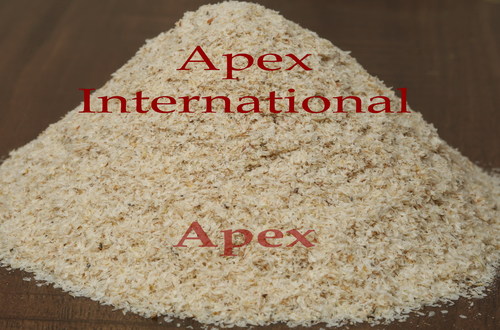
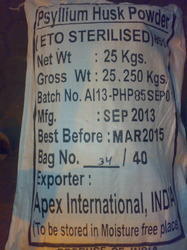
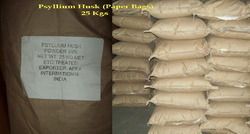
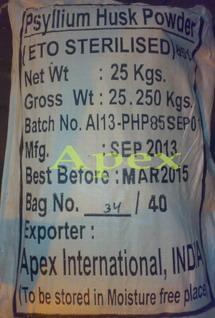
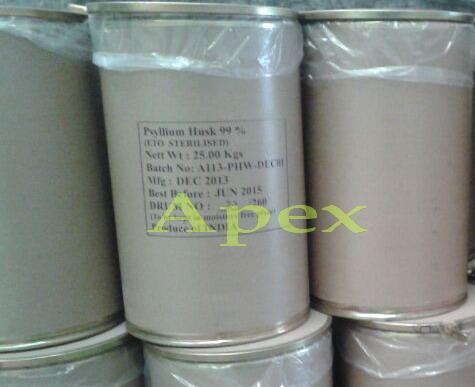

Price:
- 50
- 100
- 200
- 250
- 500
- 1000+
More Products in Psyllium Husk Category
Isabgol Husk
Price Range 7.00 - 9.00 USD ($)
Minimum Order Quantity : 2000 Kilograms
Storage Instructions : Store in a cool, dry place away from moisture
Application Method : Consume orally by mixing with water or as directed
Physical Form : Other, Husk
Usage : For relief from constipation and bowel regulation
Psyllium Seed
Price Range 6.00 - 7.00 USD ($) / Kilograms
Minimum Order Quantity : 500 Kilograms
Storage Instructions : Store in a cool, dry place away from direct sunlight
Application Method : Oral
Physical Form : Other, Seeds
Usage : For medicinal, dietary, and industrial usage
Isabgol Seeds
Price Range 6.00 - 8.00 USD ($) / Kilograms
Minimum Order Quantity : 1000 Kilograms
Storage Instructions : Store in a cool and dry place
Application Method : Oral
Physical Form : Other
Usage : For medicinal and dietary use
Organic Psyllium Husk
Price Range 7.00 - 8.00 USD ($)
Minimum Order Quantity : 500 Kilograms
Storage Instructions : Store in a cool, dry place away from direct sunlight
Application Method : Oral
Physical Form : Other, Granule
Usage : Dietary fiber supplement, mix with water or juice
 |
APEX INTERNATIONAL
All Rights Reserved.(Terms of Use) Developed and Managed by Infocom Network Private Limited. |


 Send Inquiry
Send Inquiry
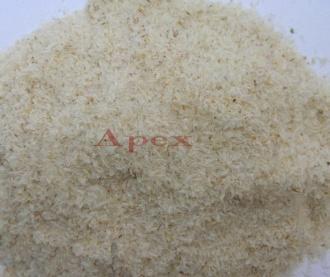
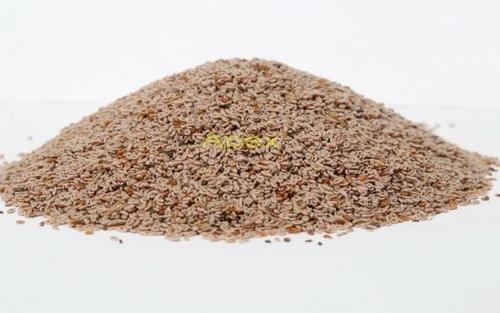
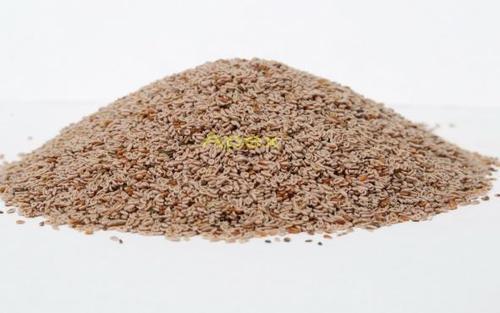
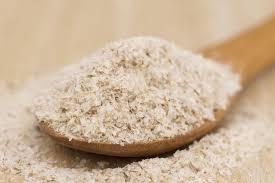


 Send Inquiry
Send Inquiry Send SMS
Send SMS Call Me Free
Call Me Free
